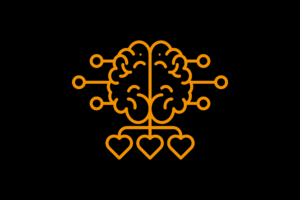As autistic people, we generally have shared ways of “being”, thinking and communicating. We may also have similar sets of values or beliefs. It might include taking part in, or valuing, some of these things:
-
- Autistic Pride Day – 18th June A day for autistic people to celebrate autism, to think about acceptance and improving the lives of autistic people everywhere.
-
- Positive Autistic-Identity Feeling good about being autistic and knowing that it is exactly how we should be.
-
- Identity First Language Most autistic people prefer to say, “I am autistic”, instead of “I have autism”. This is because autism is at the core of our identity – we are autistic. It’s not something we “have”, like a cold or a broken leg
-
- Inclusion We feel it is important to recognise the needs of all neurotypes and make sure everyone’s needs are being met.
-
- Self-Advocacy Speaking up for yourself by telling people what you need, or sometimes what you don’t need. This can be hard to do, especially if you don’t always feel listened to or validated.
-
- Valuing Our Lived-Experience Acknowledging that autistic people are the experts on what it means to be autistic.
We do not have to accept others speaking over us or about us without our input. An autistic person can usually tell you more about autism than any textbook!
-
- Social Justice & Truth Many autistic people have a strong sense of what is right or wrong. We are often truthful, even when it may not be what other people want to hear.
We dislike it when we, or others are being treated in a way that is unfair.
We can often feel driven to protect other people in these situations.
-
- Validation of ALL Communication Lots of autistic people do not speak. Sometimes this is due to anxiety, sometimes it is because we don’t have the motor-skills needed for speech.
Some people think that if you don’t speak, you must be “stupid”. This is not true! We all have a lot to say, regardless of how we may communicate, be that through talking, or using an alternative like sign language, pictures or using an electronic device.
-
- Socialising Autistic people tend not to enjoy” typical” socialising. We often find small groups of people who share our interests easier to manage than attending gatherings with lots of people. Chatting with our friends online is often easier than meeting with people face to face. We can stay in a safe environment and stop taking part whenever we want.
-
- Safe-Spaces The name given to places where we can be our authentic selves, regulate and recover from overwhelm. Often, home is our safe-space or a specific place in our home, like our bedroom or a bathroom.
-
- Empaths Empaths are people who deeply feel other peoples’ emotions. It can often be painful to be around anyone who is feeling very strongly about something. This is especially true if they are sad or upset.
-
- Deep-Dives & SpIns Our brains are great at focusing. We often love to learn EVERYTHING about the things we find interesting. We deep-dive into our favourite things. Sometimes losing track of time and not noticing what is going on around us because we are so absorbed.
-
- Love Languages (Credit to Myth@neurowonderful viaTwitter) We often show our friends and family that we care about them in ways non-autistic people don’t understand:
-
- Info-Dumping: Talking in-depth about things that give us joy. It’s often a monologue. Listening to each other’s info-dumps is a way of showing we care. This is because we know that these are the topics that make each other truly happy.
-
- Parallel Play/ Body Doubling: Existing in the same place as another person with no pressure to do anything else. We could both have headphones on or be on our phones. It might look like we’re ignoring each other, but we are comfortable.
-
- Support/ Spoon Swapping (learn more about what “spoon theory” means here: https://www.spooniekids.co.uk/)
-
- Love Languages (Credit to Myth@neurowonderful viaTwitter) We often show our friends and family that we care about them in ways non-autistic people don’t understand:
Using our strengths to support others and them using their strengths to help us.
You can remind a friend who’s not great with time that their bus is due in 10 minutes. They might remind you to eat if you always forget.
-
- Deep Pressure: Engaging our proprioceptive sense can help us feel calmer and less anxious. It might be asking for a tight hug (not everyone’s first choice!). Or, it could be that person who knows when to pass you a weighted blanket or to offer to go for a run with you.
-
- Penguin Pebbling: Giving someone an “unusual” object because you think they’ll love it. A leaf with an intricate pattern or a rock with spiky bits that looks like a hedgehog. It could be anything!
It can also be sharing memes, GIFs or a link to a new video on their favourite topic.



